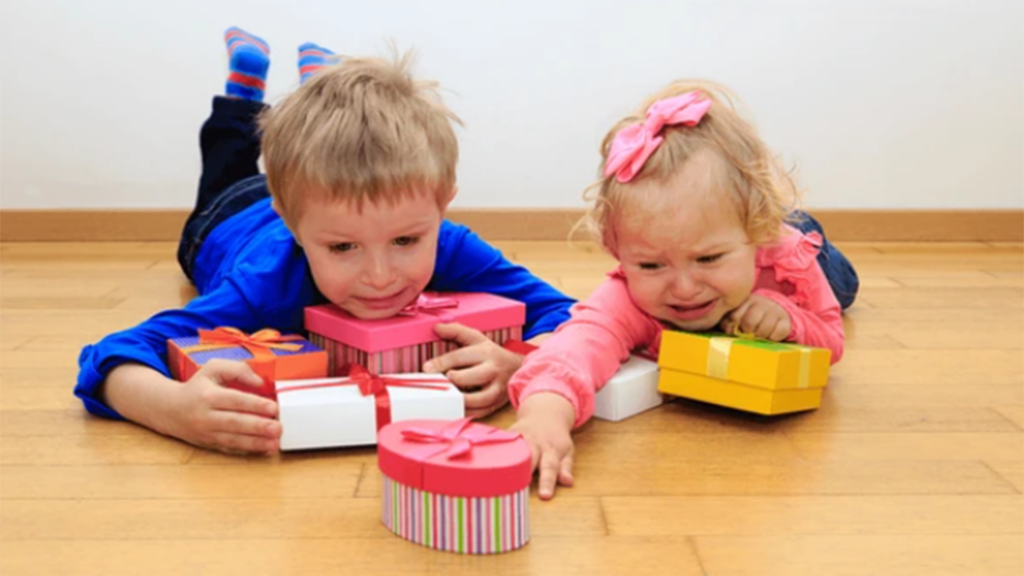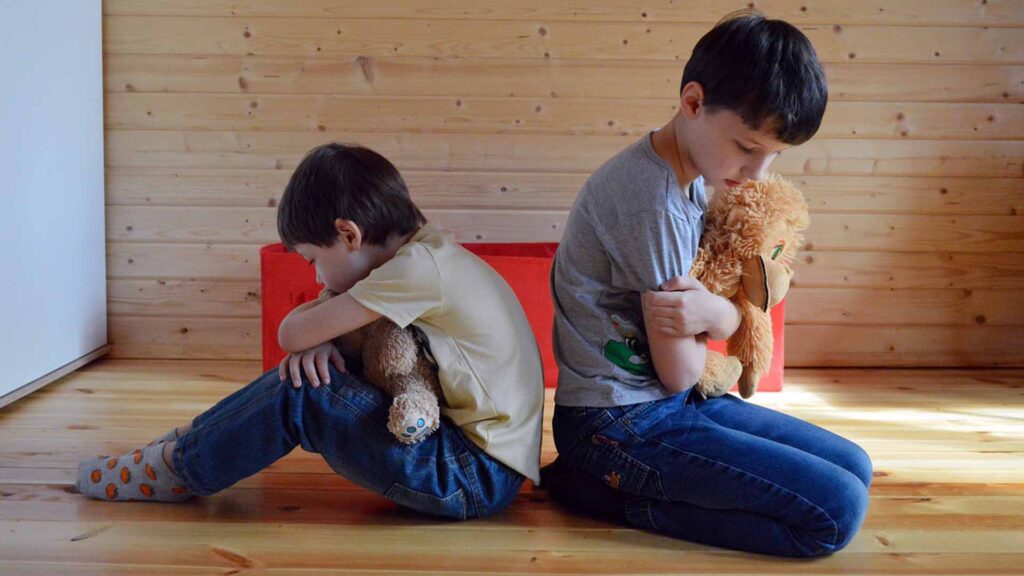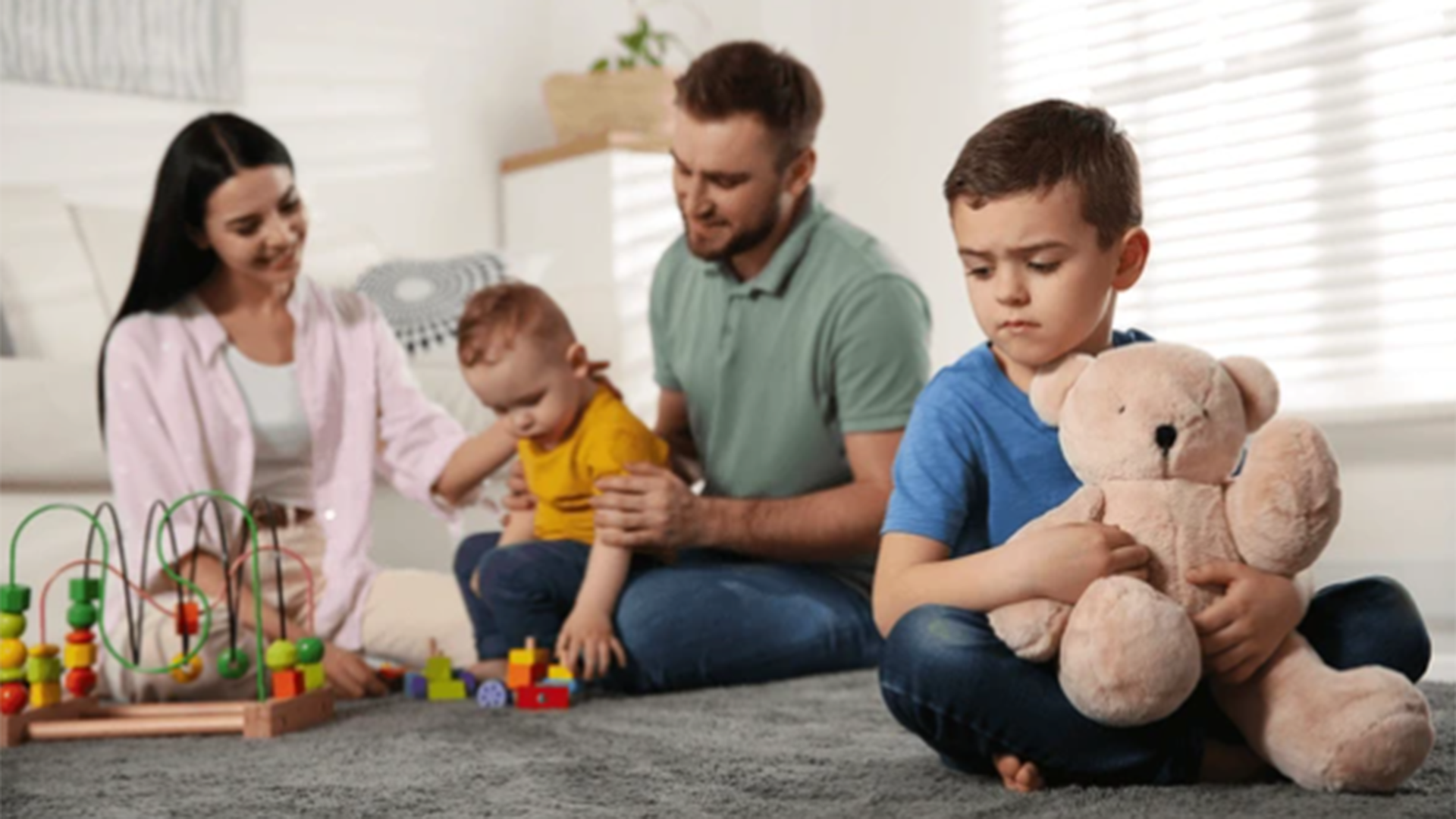Sibling jealousy is one of the most common concerns in families with more than one child. This emotion can arise from the arrival of a new member of the family or intensify in childhood due to the perception of unequal parental attention. According to the Spanish Association of Paediatrics, 80% of children experience jealousy at some point in their childhood. However, when jealousy becomes constant, it can affect the emotional well-being of siblings and family harmony.
But how do you know when jealousy is normal and when it can become a problem?
WARNING SIGNS OF EXCESSIVE JEALOUSY
- Aggressiveness or rejection towards the sibling.
- Constant comparison and need for approval.
- Low self-esteem and frustration at each other’s success.
- Disobedience, behavioural regressions or frequent tantrums.
If these signs persist over time, they can lead to unhealthy jealousy or jealousyopathy, affecting the child’s self-esteem in his or her development.

HOW TO DEAL EFFECTIVELY WITH SIBLING JEALOUSY

Child psychology experts agree that the key to reducing sibling jealousy is to foster a safe environment based on fairness and mutual respect.
Here are some strategies recommended by the Spanish Association of Child and Adolescent Psychology:
1. Validate their emotions without judging them
It is important that the child feels that his or her feelings are understood. According to child psychologist Alberto Soler, phrases such as “It’s OK” or “Don’t be like that” can make the child feel misunderstood. Instead, try “I understand that you feel that way, do you want us to talk about it?
2. Encourages the individuality of each child.
Every child needs to feel that he or she has his or her own space. Small gestures such as reading a bedtime story together or playing with them individually will help strengthen the relationship.
3. Avoid comparisons between siblings
The Cambridge University study Parent-Child Relationships and Sibling Rivalry confirms that comparisons reinforce rivalry and generate resentment. It is better to highlight each child’s achievements without pitting them against each other.
4. Reinforces respect and collaboration
Encouraging team activities helps to change the competitive mentality into a cooperative one.
5. Ensure moments of undivided attention
Spending ten minutes a day with each child can make a big difference to their self-esteem. Activities such as walks, games or just an undisturbed conversation can strengthen the emotional bond.

“Jealousy is born of love, but does not die with it”.
CASVI, AN EDUCATION BASED ON EMOTIONAL INTELLIGENCE
At Casvi Villaviciosa International School, we understand that emotional education is key to children’s all-round development. Through programmes such as the International Baccalaureate (PEP, PAI and PD) and our cooperative learning methodologies, we promote values such as respect, empathy and collaboration. All of this helps our pupils to manage their emotions in a healthy way.
If you want to know more about our educational approach and how we help children to manage their emotions, click on the button and find out all about Casvi Villaviciosa.

